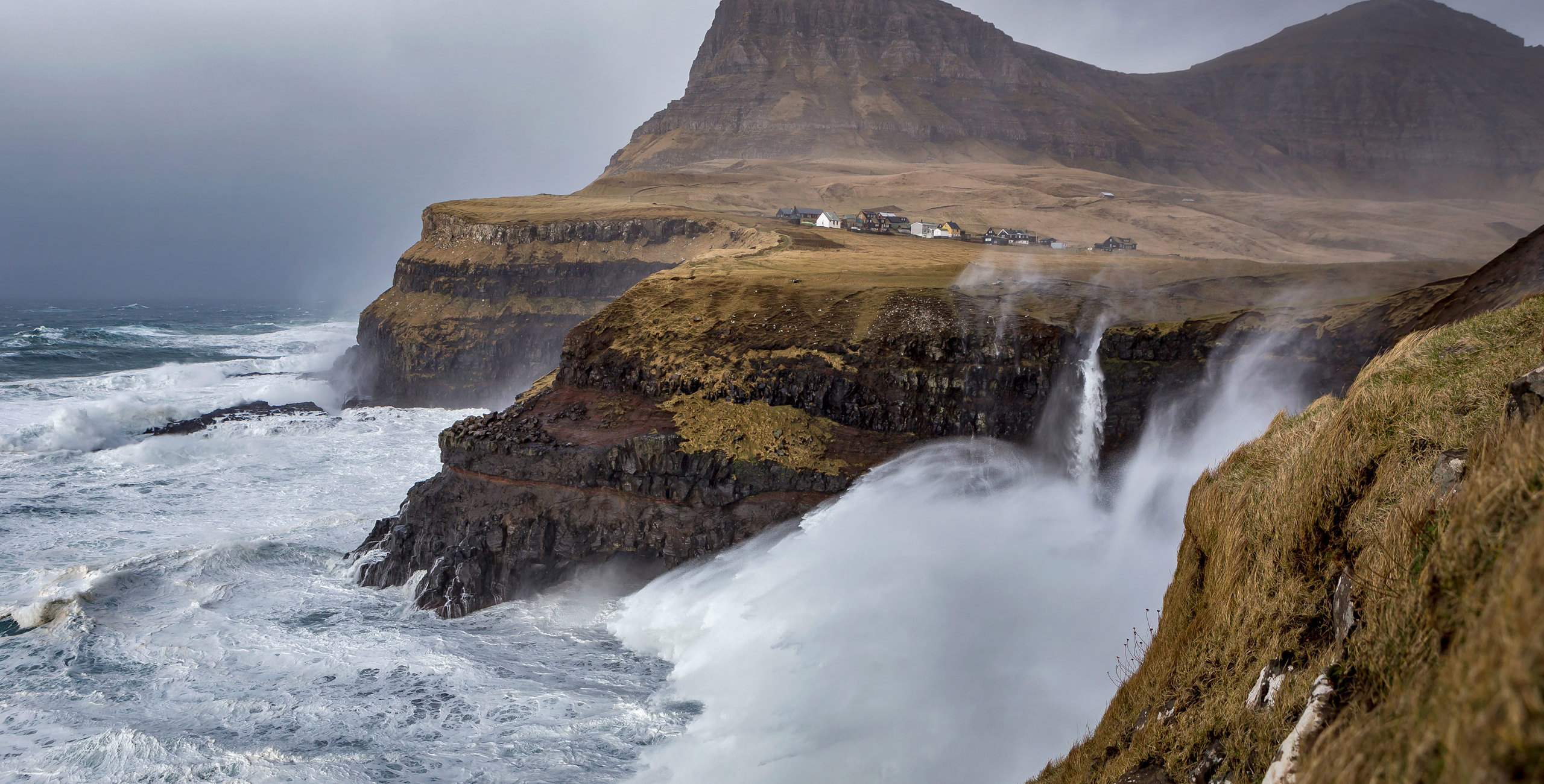
Weather has always had a central role in the lives of the people of the Faroe Islands. The expression “detta oman,” or “fall down,” refers specifically to falling down from cliffs or mountain sides, a far too common occurrence, caused by the sudden onset of fog.
The experience of getting lost in the outfields is not uncommon even today.
It is, however, especially at sea where the weather has historically wreaked havoc on Faroese communities.
One such event happened on the 23 December 1913, when three fishing crews from the Northern Islands perished in what could be described as the storm of the century.
Only ten days before that, another boat from Svínoy had disappeared in a fierce storm. When Christmas arrived that year, 25 fishermen had died, leaving 13 widows and 34 fatherless children.
The ominous newspaper report in Dimmalætting on Christmas Eve indicated the catastrophic consequences such an event can have on small communities: “The storm came without warning with winds from Northeast, and all boats immediately had to try to get home… Now that the six men from Skarð have perished, the village has lost all of its adult male population.”
A few years later, the remaining inhabitants of the village of Skarð were evacuated.
Four years after the event, the renowned poet, Janus Djurhuus, composed a tribute to the lost fishermen, which the Northeast wind is personified as the Priestess of Atlantis.
According to Djurhuus, those who see the priestess of Atlantis follow her into “deep blue dream worlds” while relatives and friends cry and grieve them.
Similar tributes to fishermenn, life at sea and the dangers involved are to be found in short stories, novels, songs and the fine arts. Events like this came to define the early to mid 20th century, and today fishery has an almost epic cultural status.
Most Faroese towns and villages have memorials in honour of sailors and fishermen lost at sea and in war time during the Second World War.
These memorials serve as reminders to a privileged youth of the hardships and self-sacrifice of previous generations. They are also a reminder of the power of nature and the weather, and its place in Faroese culture.